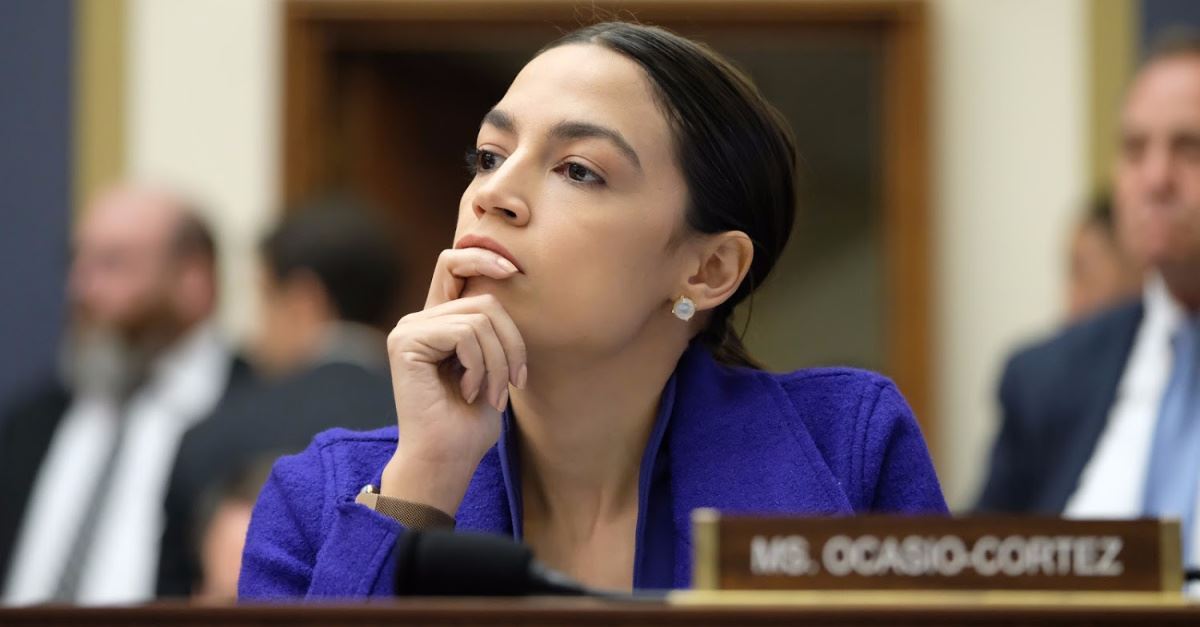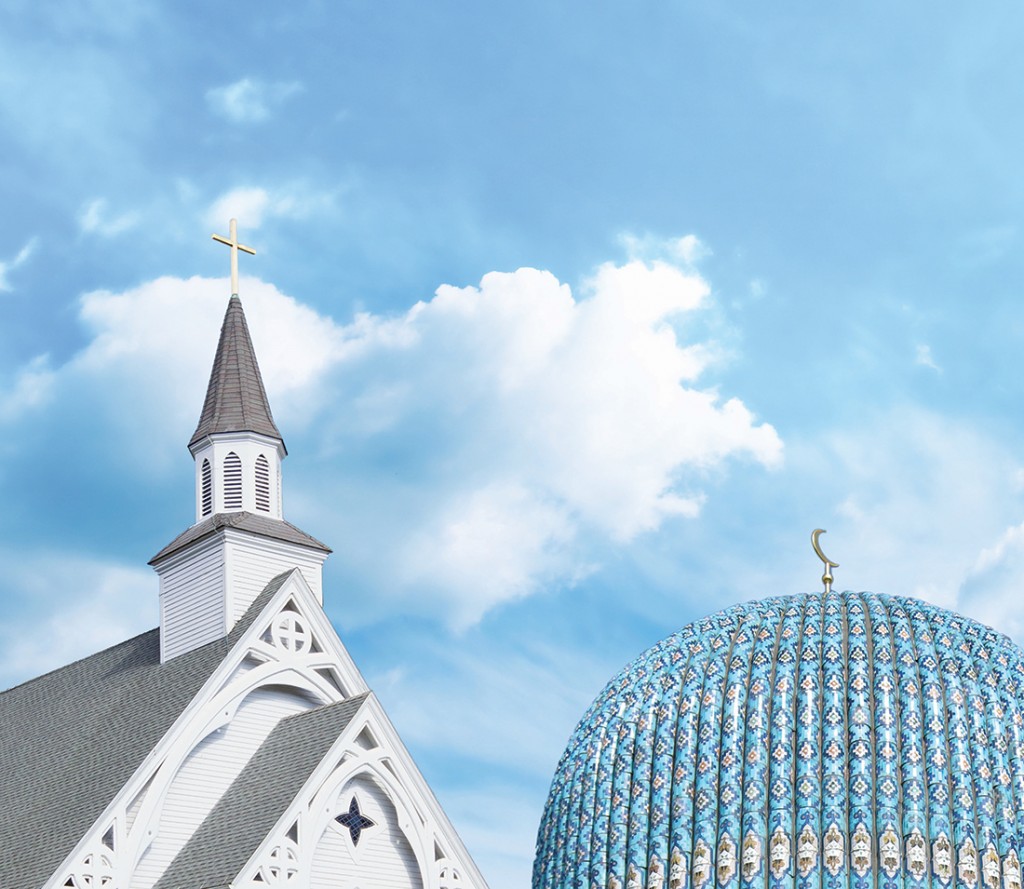Monday night Muslim members of Congress hosted a mid-Ramadan traditional Ramadan meal for their colleagues in Congress---to explain their faith.
In this setting, a Catholic congresswoman, not a Muslim, declared that "all our prayers go to the same place."
Even the Muslims don't believe that--they simply want you to believe it.
Be informed.
A night for all faiths to come together at our nation's Capitol.
The Washington Post reported that "The congressional iftar, hosted at the Capitol, was a night for Rep. Omar (D-Minn), Rep. Rashida Tliab (D-Mich) and Rep.Andre Carson (D-Ind.) to explain their [Muslim] faith"---and enjoy a mid-Ramadan celebratory meal.
The three Muslims in Congress had invited about 100 fellow members of Congress and clergy from other faiths and Muslim activists.
Senator Dick Durbin told the gathering your "religion gives you values and inspiration." Then pivoting to more important matters, said: "We will stop this white supremacist, white nationalist rhetoric that's so hateful, so divisive, so deadly, as we've seen in Charlottesville."
Outspoken Representative Ilhan Omar and Representative Rashida Tliab both spoke at length about their Muslim faith explaining what Muslims believe, etc.
But it was a Catholic congresswoman, not a Muslim, who told the crowd that all prayers go to the same place.
Catholic Rep. Alexandria Ocasio-Cortez declared that all prayers, Muslim, Christian, and Jewish, reach the same higher power.
She said,
"When Ilhan prays, when I pray, when Rashida prays, when Ayanna [Pressley] prays, when Jan Schakowsky prays, I believe those prayers all go to the same place---'up' to the same higher power."
Jan Schakowsky, a Jew who had helped organize the event, quickly explained that so much of the "quote-unquote controversy is stirred up by folks who are not from either of these communities. That's not what it's about. It's about learning from each other, not turning on each other."
Speaking of "turning on each other," in her response to a sweeping abortion ban that was just passed by Alabama, Ocasico-Cortez tweeted this:
What angers me about the GOP’s attempts to turn the United States into a far-right Christian theocracy is how dishonest they are about it.— Alexandria Ocasio-Cortez (@AOC) May 17, 2019
At least be forthright about your desire to subvert and dismantle our democracy into a creepy theological order led by a mad king.
That's certainly a remarkable act of kindness toward her fellow Christians.
Do all prayers "go to the same place?" Do Christians and Muslims worship the same God?
Dr. Albert Mohler, Jr. is the president of The Southern Baptist Theological Seminary in Louisville, KY.
He is a reliable, biblical conservative leader and theologian. He wrote an article that was published on the Billy Graham website and speaks to the questions, "Does God care what we call Him?" And "Do Christians and Muslims worship the same God?"
This is an overview of his remarks.
Regarding God's name.
Mohler says God puts a great deal of importance on His Name. "Changing the name of God is no small thing," he says.
And he notes:
Moses understood this. When he encountered the call of God that came from the burning bush, Moses asked God, “If I come to the people of Israel and say to them, ‘The God of your fathers has sent me to you,’ and they ask me, ‘What is his name?’ what shall I say to them?” (Exodus 3:13). God answered Moses, “I Am who I Am” (Exodus 3:14). God told Moses, “Say this to the people of Israel, ‘The Lord, the God of your fathers, the God of Abraham, the God of Isaac, and the God of Jacob, has sent me to you.’ This is my name forever, and thus I am to be remembered throughout all generations” (Exodus 3:15).
Christians must keep this central principle from the Bible constantly in mind as we consider some of the most urgent questions we face in the world today. We must certainly have this principle in mind when we think about Islam.
Several years ago, a bishop in the Netherlands attracted controversy when he argued that Christians should call God “Allah” in order to lower theological tensions. He also argued that calling God “Allah” would be commonplace in Christian churches within a century and that this would lead to a synthesis of Islam and Christianity.
More recently, an Islamic court in Malaysia ruled that only Muslims can use the name “Allah” in print publications. “The usage of the word will cause confusion in the community,” the chief judge ruled. Oddly enough, Christians may well agree with this Islamic judge. To call God “Allah” is to invite confusion.
In the Bible, God reveals Himself to us in many names. These names are His personal property. We did not invent these names for God. To the contrary, God revealed these names as His own.
We have no right to modify or to revise these names—much less to reject them. Jesus Christ made this abundantly clear. In the simplest way imaginable, Jesus teaches us to know God as Father, and to use this name in prayer. The Lord’s Prayer begins with the words, “Our Father, who is in heaven.” By the grace that God has shown us in Christ, we can truly know Him as Father.
Regarding Muslims and God.
Muslims do not speak of God as their heavenly Father.
Furthermore, Muslims claim that Allah has no son. This represents a head-on collision between the God of the Bible and Allah. For, as the Bible makes clear, the one and only true God is most perfectly revealed as the Father of the Son, Jesus Christ.. Jesus declared Himself to be “the way, and the truth, and the life,” adding, “No one comes to the Father except through me” (John 14:6).
Because Muslims deny that God has a son, they explicitly reject any Trinitarian language.
Islam teaches that the doctrine of the Trinity is blasphemous. But the Christian faith is essentially and irreducibly Trinitarian.
The Trinitarian nature of God is embedded within the Great Commission. Jesus tells His disciples to go into the world and make disciples of all nations and to baptize them “in the name of the Father and of the Son and of the Holy Spirit” (Matthew 28:19). Christians are those who bear the names of God even in our baptism, and those names are Father, Son and Holy Spirit.
This has become a matter of significant controversy in recent years as some Christians, including some serving with mission agencies, have argued that Christians can use the name “Allah” in talking about God.
Continuing to use the name “Allah” to refer to the God of the Bible in such situations invites deep confusion. Some now argue that Muslims who come to faith in Christ can even remain within the mosque and continue to worship God as Allah. It is hard to see how that is anything other than a theological disaster.
We can now see that the name of God is no small matter. The deity we name is the God we believe in. Christians believe in only one God, and He is the Father who sent the Son to save us from our sins. Allah has no son, and, thus, Christians cannot know God as Allah. In this light, Muslims and Christians do not only use different names for God; in reality, these different names refer to different gods.
We are living in challenging days. One of the most pressing challenges of our times is the task of speaking rightly about God. This is particularly challenging when Christians encounter Muslims, but it is also a challenge when Christians encounter secular people in Western cultures. But this really isn’t a new challenge. It was the same challenge faced by the children of Israel as they encountered the Canaanites, and the same challenge faced by the Apostle Paul at Mars Hill.
Our challenge is to speak truthfully about God, and the only way we can do that is to use the names God gave Himself.
The God of the Bible is not Allah, and Allah is not the God of the Bible. Any confusion about that undermines the very Gospel we preach.
Be Informed. Be Faithful. Be Vigilant. Be Discerning. Be Prayerful.




